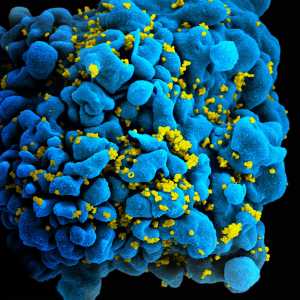18 Jan Brief Interruption of HIV Treatment Did Not Lead To Irreversible Expansion of Viral Reservoir
MedicalResearch.com Interview with:
Tae-Wook Chun, Ph.D.
National Institutes of Health
Bethesda, MD 20892
MedicalResearch.com: What is the background for this study? What are the main findings?
Response: While antiretroviral therapy (ART) has improved the clinical outcome for people living with HIV, persistence of viral reservoirs in the peripheral blood and lymphoid tissues remains a hurdle to complete eradication of virus and cure of the infection. We know the vast majority of people living with HIV will experience plasma viral rebound within weeks of cessation of therapy. Considering that current research on the treatment of people living with HIV has been heavily focused on developing strategies aimed at achieving sustained virologic remission in the absence of ART, it is of great interest to investigate whether treatment interruption results in expansion of the viral reservoir and/or damage to the immune system. Using data from a recently concluded trial that employed short-term analytical treatment interruption (ATI), we found that, as expected, HIV DNA increased in the CD4+ T cells of individuals living with HIV during the treatment interruption phase. However, the size of the HIV reservoirs as well as immune parameters returned to baseline 6–12 months after the participants resumed ART.
MedicalResearch.com: What should readers take away from your report?
Response: Prior to this investigation, much of our knowledge regarding the kinetics/mechanism of viral rebound had been based on investigations using structured treatment interruptions in supervised clinical settings dating back to 1999. Our analyses suggest ATI does not lead to expansion of the persistent HIV reservoir nor irreversible damages to the immune system in the peripheral blood. This is particularly important as we explore new treatment options that will invariably require patients to stop therapy while monitoring for viral rebound. The results prompted us to design an ongoing protocol examining the impact of treatment interruption on people living with HIV receiving modern ART regimens without the presence of any anti-HIV therapeutics (i.e. broadly neutralizing antibodies) and in a larger cohort of patients.
MedicalResearch.com: What recommendations do you have for future research as a result of this work?
Response: Clinical validation of new therapies will likely require patients to suspend treatment while monitoring for viral rebound. Further investigations addressing longitudinal examination of tissue compartments may be necessary to formally evaluate the impact of ATI and re-initiation of ART in a larger cohort of study participants who are not receiving other investigational anti-HIV agents. However, we believe our current findings support the use of ATI in the setting of close monitoring of plasma viremia and strict ART restart guidelines when exploring the efficacy of therapeutic strategies aimed at achieving sustained ART-free virologic suppression in patients with HIV.
MedicalResearch.com: Is there anything else you would like to add?
Response: As mentioned above, the results of this study led to the design of our current protocol titled “Impact of a Short-Term Analytical Treatment Interruption and Re-Initiation of Antiretroviral Therapy on Immunologic and Virologic Parameters in HIV-Infected Individuals.” We are currently recruiting, and details are outlined at https://clinicaltrials.gov/ct2/show/NCT03225118.
Citations:
Katherine E. Clarridge, Jana Blazkova, Kevin Einkauf, Mary Petrone, Eric W. Refsland, J. Shawn Justement, Victoria Shi, Erin D. Huiting, Catherine A. Seamon, Guinevere Q. Lee, Xu G. Yu, Susan Moir, Michael C. Sneller, Mathias Lichterfeld, Tae-Wook Chun. Effect of analytical treatment interruption and reinitiation of antiretroviral therapy on HIV reservoirs and immunologic parameters in infected individuals. PLOS Pathogens, 2018; 14 (1): e1006792 DOI: 10.1371/journal.ppat.1006792
MedicalResearch.com is not a forum for the exchange of personal medical information, advice or the promotion of self-destructive behavior (e.g., eating disorders, suicide). While you may freely discuss your troubles, you should not look to the Website for information or advice on such topics. Instead, we recommend that you talk in person with a trusted medical professional.
The information on MedicalResearch.com is provided for educational purposes only, and is in no way intended to diagnose, cure, or treat any medical or other condition. Always seek the advice of your physician or other qualified health and ask your doctor any questions you may have regarding a medical condition. In addition to all other limitations and disclaimers in this agreement, service provider and its third party providers disclaim any liability or loss in connection with the content provided on this website.
Last Updated on January 18, 2018 by Marie Benz MD FAAD

